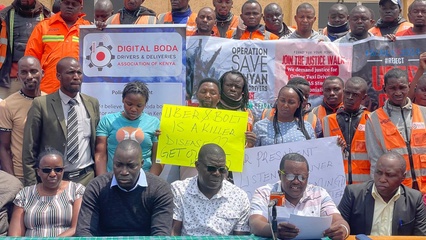Bolt drivers in Kenya have issued a strike threat, alleging that the ride-hailing company is showing favouritism towards vehicles owned by Hakki Africa, a significant auto financier.
This assertion has incited discord among drivers, who contend that Hakki-financed cars are preferred over those owned by independent proprietors in allocating rides and incentive programs.
According to the drivers, this practice jeopardises their employment security and earnings.
Drivers complain of unfair ride allocation
The core complaint from Bolt’s driver-partners centres on the assertion that cars financed by Hakki Africa receive preferential treatment. Some drivers say these Hakki-owned vehicles are prioritised for ride assignments and better incentives, leaving independent drivers disadvantaged.
One driver shared, “We see Hakki-financed cars getting more rides and bonuses while many of us struggle with fewer trips.” This perceived inequality has prompted calls for management to address the issue fairly and transparently.
Drivers demand equal treatment and fair Incentives
The threatened strike aims to push Bolt to ensure all drivers, whether independent or Hakki-financed, receive equal opportunities in ride allocation and access to incentive programs.
Driver representatives stated, “We want a level playing field where loyalty is rewarded based on service quality, not ownership of the vehicle.” Aside from fairness, the drivers highlighted their struggle with low earnings and high commissions.
Previous protests within the app-based transport sector in Nigeria and Kenya have focused on similar driver welfare issues, spotlighting the need for better engagement between platforms and their drivers.
The media and the public have been captivated by the increasing dissatisfaction of drivers, who are seeking immediate action to address the imbalance. Although the specific allegations have not yet been discussed in detail by the firms in question, the ongoing dispute serves as a reminder of the difficulties associated with overseeing large ride-hailing networks with divided vehicle ownership. Drivers maintain their steadfast stance, being prepared to intensify their pressure until their demands for equitable treatment are satisfied.












